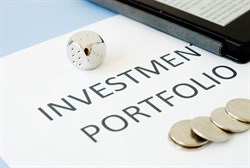
This, in turn, leads to investment monies being allocated more meaningfully, especially in terms of investor life stage.
Passive investing does involve the active choice of asset class exposure, benchmark and application of style or alternatively-weighted indices, thus providing diversification for younger savers. Index tracking also enables consistent, predictable returns and improved risk management for those closer to retirement.
"Younger investors are able to take a longer-term view of their investment and, as they are exposed to a mix of return drivers through the passive investment process - including a larger exposure to equities - enjoy the benefits of diversification and compounding at a lower cost," says Pearson.
"With the generally-accepted retirement age being 65, retirees can look forward to a possible third of their life being spent outside of formal working years. Benchmark-based investing offers strong potential for a positive return outcome for those with a shorter investment horizon."
As a result of the abiding sense of uncertainty in the current global economy, predictably is becoming a highly sought-after commodity for investors. South Africa, as part of the 'fragile five', has been particularly affected by this instability as emerging markets experience an outflow of capital due to the slowing of the US Federal Reserve's quantitative easing programme and resultant reduced global liquidity.
South Africa's high debt burden, lack of growth, fiscal challenges and poor economic reform have made us particularly vulnerable to this withdrawal of funds. Taking investment risks is therefore inadvisable and finding cost-effective, safe ways of accessing maximum asset class exposure has become essential.
Funds are now able to invest 25% offshore (ex-SA and Africa) and 5% in African stocks and exposure to foreign investment opportunities is therefore increasing, providing potential for cost-effective earnings growth. "Such prospects, however, come with concentration, geographic and political risks, especially in relation to Africa, and their potential as value drivers could be better assessed and monitored through the use of custom indexing," adds Pearson.
Although South Africa is starting to follow the offshore trend, advisory accountability is proving somewhat of a deterrent. Liability profiles being defined and measured in accordance with a benchmark may reduce associated fears. Financial intermediaries in the retail space are also incentivised to sell active products and the current debate around fees and performance may also generate better flows into index-tracking portfolios.
In a country with a low savings rate, passive investment products offer a cost-effective and predictable investment solution. "Investing in indexed products makes sense from a fee and return perspective as they provide affordable, safe access to diversified portfolios. Educating clients on how to make the most of their money and adopt appropriate, bespoke investment solutions may assist in addressing these worrying, low-savings statistics," concludes Pearson.